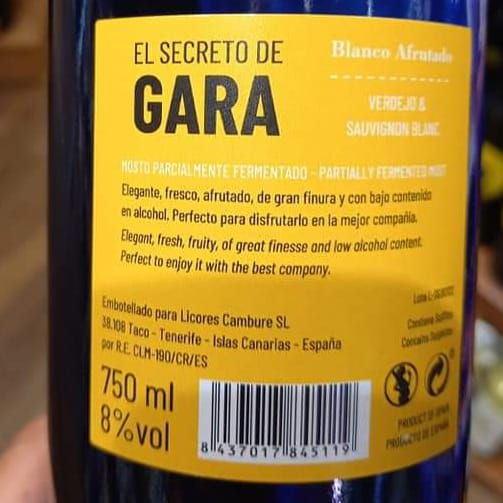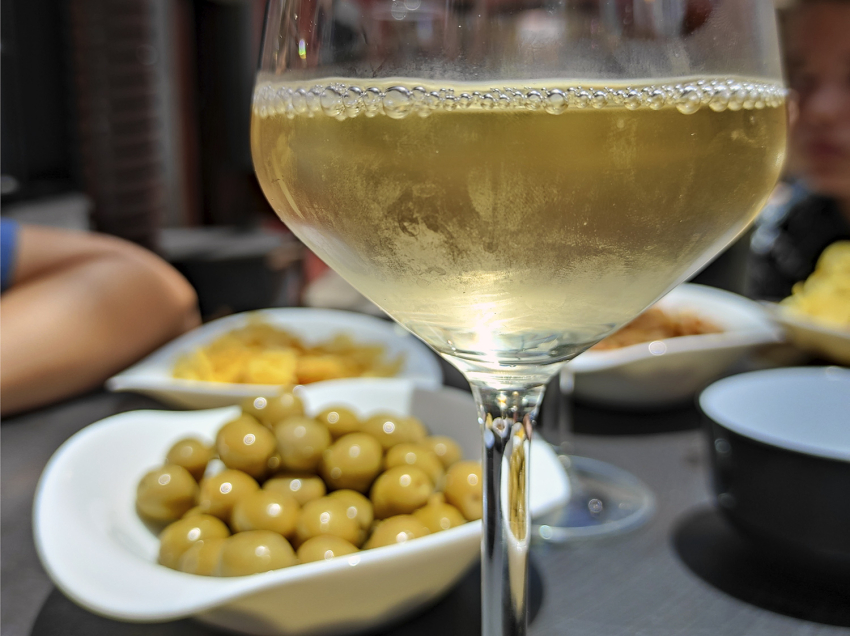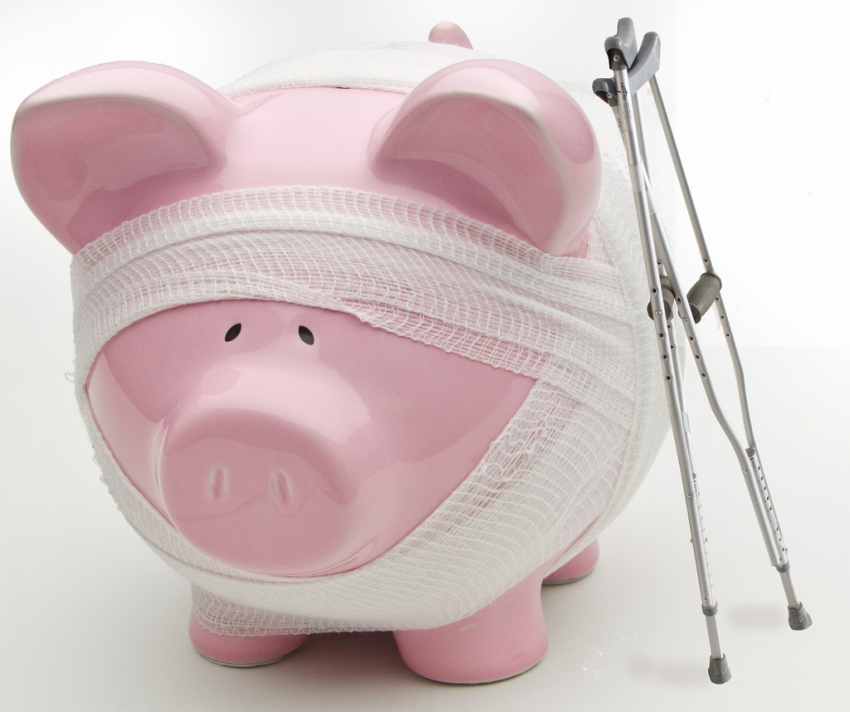How To Spot Fake Canary Islands Wine
Canary Islands wine producers have recently warned about a marketing trick used to sell imported wine as local produce by using Canarian label designs and texts.
 Bottled in the Canary Islands
Bottled in the Canary Islands
A wine that is made from Spanish grapes and imported in bulk can be bottled in the Canary Islands and labelled as "Embotellado en Canarias". With a convincing Canary Islands design on the label, this winer is then sold as if it is local produce in supermarkets and restaurants. The imported wine often uses grape varieties that are also grown in the Canary Islands, such as Malvasia and Albillo, as an added distraction.
Because production costs are so much lower in Spain's vast vineyards, these wines either undercut the local wine producers, or are sold at the same price as authentic Canary Islands wines.
Genuine Canary Islands wine is easy to recognise
This trick depends on people assuming that a bottle that looks like a Canary Islands wine and says bottled in the Canary Islands on the label is a Canary Islands wine.
Fortunately, all genuine Canary Islands wine does have a Denominación de Origen Protejida (Protected Designation of Origin) label system that is easy to spot and guarantees provenance. It's a similar system to the one used to label genuine Champagne or Greek feta cheese.
Real Canary Islands wine have a DO section on the rear label. Gran Canaria, Lanzarote, La Palma, La Gomera, and El Hierro each have an island-wine DO, while Tenerife has five; D.O. Tacoronte-Acentejo, D.O. Valle de La Orotava, D.O. Ycoden-Daute-Isora, D.O. Valle de Güimar, and D.O. Abona. Fuerteventura doesnt have a DO as it only has one wine producer (that we know of).
There is also an Islands Canarias or Canary Wine DO that covers wines made using grapes from more than one island, or from areas of Tenerife that are outside the designated DO zones.
You can see several of these label sections in the image gallery of this article.
Genuine Canary Islands wine, made from grapes grown in the Canary Islands, have one of these DO sections on their rear label. The only exceptions are really local wines made for personal consumption and sometimes sold in local bars and Guachinches.
Protecting Canary Islands wine growers and the countryside
Vineyards and Canary Islands wines have become an important source of income for rural communities and supporting them by drinking local is a great way to keep rural areas vibrant.
There is also no problem if you choose to drink Spanish wine that is imported and sold in the Canary Islands. Spanish wine is excellent and much cheaper than local wine because the vineyards in Spain are huge and mechanised. All wine in the Canary Islands, on the other hand, comes from small vineyards that hand-pick their grapes. Local wine great stuff but you won't find a bottle of Canary Islands wine for less than 10 euros. Decent Spanish Rioja crianza reds, or Albariño whites, start at around six euros.
The problem here is when cheaper imported wine is sold sneakily as local produce and undercuts the local wineries and the local economy.
The practice is dishonest and destructive and we hope this article helps you to avoid being tricked. If you want to try Canary Islands wine, read our Gran Canaria Info wine section, and check the labels.
Gran Canaria Info recommends:
- Default
- Title
- Date
- Random













